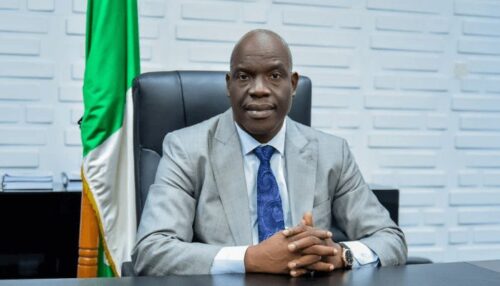Oil Production on the Rise
Nigeria’s crude oil production has climbed to an average of 1.75 million barrels per day (BPD), with daily gas output reaching 7 billion standard cubic feet (SCFD). The Nigerian Upstream Petroleum Regulatory Commission (NUPRC) disclosed this at the Renewed Hope Global Town Hall Conference in Abuja.
Gbenga Komolafe, Chief Executive of NUPRC, outlined the sector’s progress while highlighting key reforms aimed at sustaining growth.
Tackling Declining Output and Oil Theft
Oil theft previously led to a sharp production decline, dropping to 1.1 million BPD in 2022. However, a mix of enforcement measures and security interventions has helped reduce theft to 5,000 BPD. As a result, output has steadily increased, now exceeding 1.7 million BPD.
The government is now focused on boosting production by an additional 1 million barrels per day by 2026. This goal, set under the Project 1 MMBPD Initiative, will involve collaboration between oil operators, service providers, financial institutions, and host communities.
Regulatory Reforms and Investment Strategy
Since the passage of the Petroleum Industry Act (PIA) in 2021, NUPRC has taken steps to strengthen regulation and attract more investment. In May 2023, the commission introduced a 10-year Regulatory and Corporate Strategic Plan (2023–2033), followed by a Regulatory Action Plan for 2024. These initiatives focus on increasing oil and gas reserves, improving hydrocarbon tracking, cutting costs, and supporting decarbonization in upstream operations.
Nigeria ranks among Africa’s top oil-producing nations. The country holds the second-largest crude oil reserves on the continent, with an estimated 37.5 billion barrels. It also possesses 209 trillion cubic feet (TCF) of gas reserves, the highest in Africa.
Commitment to Sustainability and Fiscal Transparency
The Nigeria Gas Flare Commercialization Programme (NGFCP) remains a crucial part of the country’s energy transition efforts. This initiative is designed to curb gas flaring, lower methane emissions, and encourage carbon capture technology.
To prevent revenue losses, NUPRC has implemented stricter policies on hydrocarbon metering, crude pricing, and cargo tracking. These measures aim to reduce oil theft and boost financial transparency across the sector.
Strengthening Host Community Engagement
NUPRC has established 137 Host Community Development Trusts (HCDTs) to enhance local participation and stability in oil-producing areas. Additionally, the commission has launched an Alternative Dispute Resolution Centre (ADRC) to address industry conflicts efficiently, reducing disruptions to production.
Nigeria’s Growing Appeal for Investors
Komolafe emphasized that Nigeria’s oil and gas sector is now more investment-ready than ever. With a stable political environment, a growing gas industry, and a clear energy transition roadmap, the country is positioning itself as a key energy investment hub in Africa.
“Our commitment to regulatory clarity, investor-friendly policies, and global competitiveness remains firm,” he said. “With strong partnerships, Nigeria is unlocking its full hydrocarbon potential while ensuring sustainable growth.”



